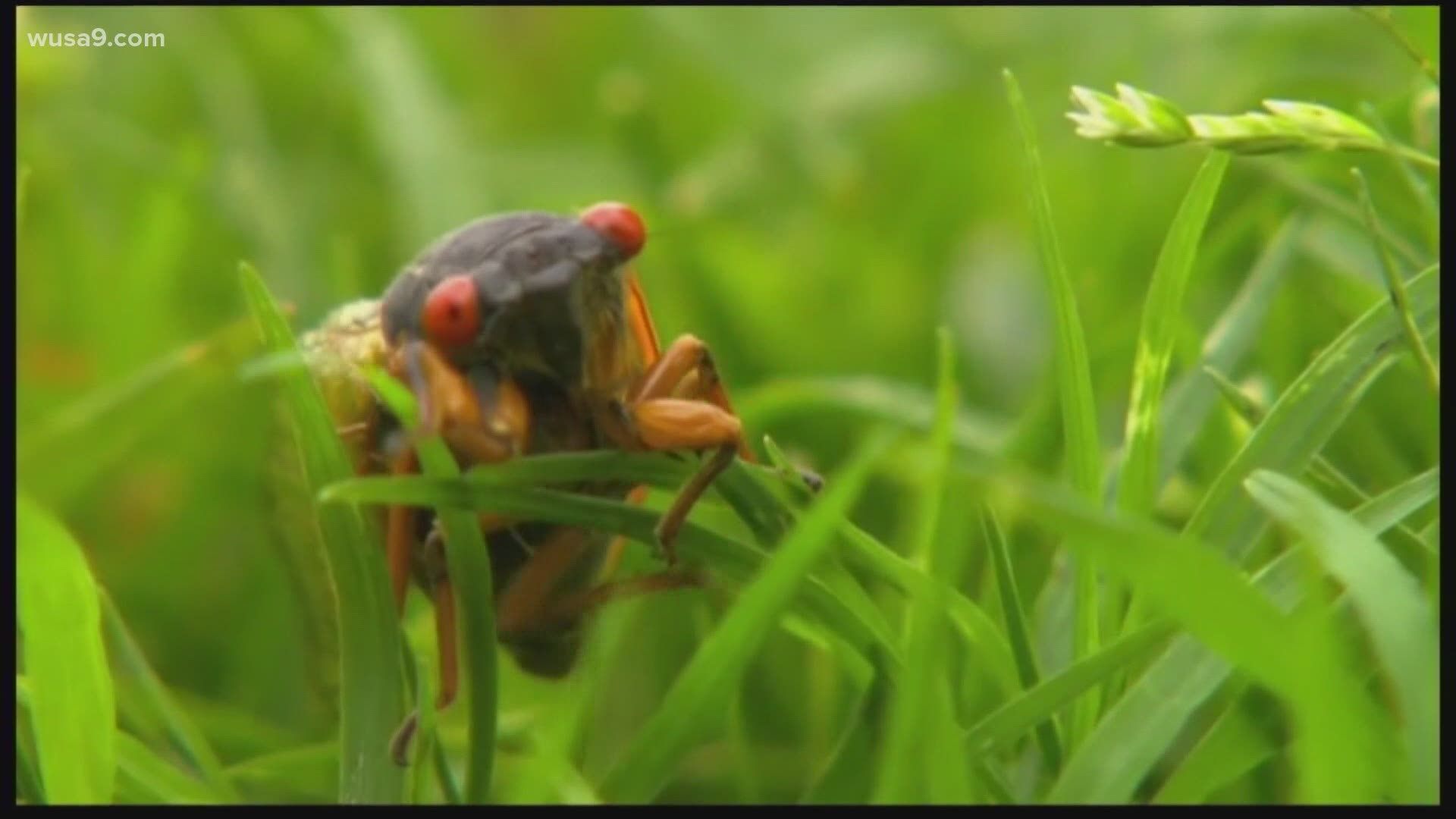WASHINGTON — Trillions of cicadas are about to resurface after living underground since 2004.
While the bugs are harmless to you and your pets, WUSA9 wanted to know what impact they could have on your lawns, gardens, and trees.
Dr. Samuel Ramsey, who is an entomologist with the U.S. Department of Agriculture, explains what to look out for and what you need to do before the insects pop out of the ground.
“The cicadas already know that it’s the year they’re supposed to be emerging. We can tell because they start digging these exit tunnels that we call chimneys. You can actually see these little holes in your gardens sometimes. The cicadas will sick their heads out like ‘Is it time? Is it time? Mm. Not quite,'” Dr. Ramsey said.
He told WUSA9 the bugs need the ground to be around 64 degrees.
It is hard to predict an exact day, but Dr. Ramsey believes they will come out around mid-May.
When it comes to the impact cicadas may have on lawns, trees, or gardens, Dr. Ramsey said people do not need to worry about cicadas munching on plants and vegetables or ruining their gardens.
However, if you have new, small trees or young wooded plants, you may want to watch out.
“These cicadas have been in isolation for 17 years, all they want to do now is mate and have babies,” Dr. Ramsey said. “So, they get up in these trees, they party. Then, when the females have actually mated, they will cut these scars into the sides of branches of trees.”
Those tint cuts could cause a branch to go bad and die which is a bigger deal for small trees. The scars are less of an issue for larger trees.
Dr. Ramsey said the best thing you can do is buy netting to wrap around those small trees and wooded plants before the cicadas emerge.
“This netting needs to be about ½ an inch to 3/8 of an inch – the small holes in it,” he described.
Dr. Ramsey said it is important to cinch the bottom of the netting so the bugs cannot get in.
He said the main thing to remember is that cicadas cannot hurt people, they do not bite, and they do not sting.
“At the end of the day, one of them might bump into your head because they’re pretty clumsy fliers,” Dr. Ramsey laughed.

